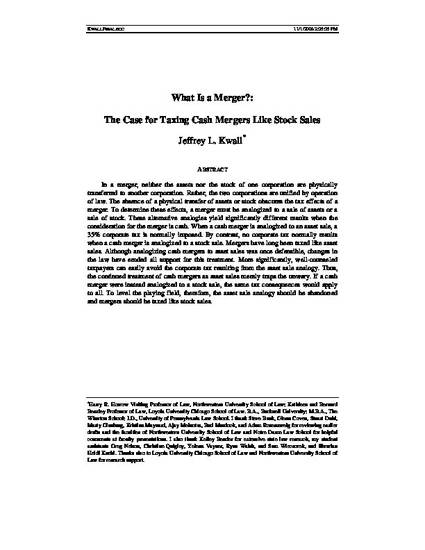
In a merger, neither the assets nor the stock of one corporation are physically transferred to another corporation. Rather, the two corporations are unified by operation of law. The absence of a physical transfer of assets or stock obscures the tax effects of a merger. To determine these effects, a merger must be analogized to a sale of assets or a sale of stock. These alternative analogies yield significantly different results when the consideration for the merger is cash. When a cash merger is analogized to an asset sale, a 35% corporate tax is normally imposed. By contrast, no corporate tax normally results when a cash merger is analogized to a stock sale. Mergers have long been taxed like asset sales. Although analogizing cash mergers to asset sales was once defensible, changes in the law have eroded all support for this treatment. More significantly, well-counseled taxpayers can easily avoid the corporate tax resulting from the asset sale analogy. Thus, the continued treatment of cash mergers as asset sales merely traps the unwary. If a cash merger were instead analogized to a stock sale, the same tax consequences would apply to all. To level the playing field, therefore, the asset sale analogy should be abandoned and mergers should be taxed like stock sales
Copyright 2006 Jeffrey L. Kwall
